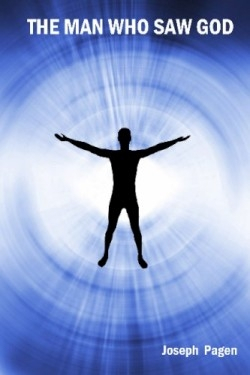The Man Who Saw God
Michael doesn’t consider himself to be a religious man but he finds himself full of questions about God. In search of a spiritual mentor he looks for answers about some unusual personal experiences. His questions aren’t so much about God’s existence but about whether it’s possible to have a face-to-face encounter with Him.
In The Man Who Saw God the human quest for truth and understanding of the world beyond the senses and emotions is explored. When author Pagen’s protagonist approaches Ben a spiritual teacher he immediately asks if God exists and if it’s possible to have an encounter. Ben’s response is “Why don’t you start by presuming that there is something that matches the definition of God and a direct encounter really is possible. What then is your next question?”
From this first encounter with Ben Michael is given some basic thoughts to take home with him —thoughts about finding God in the silence between thinking and not thinking then later thoughts about living in the present and letting go of thoughts about the past and future. Michael returns to Ben’s cabins in the woods just west of Santa Barbara California and is challenged to do things such as move a needle telekinetically. Many times Michael leaves frustrated or has unanswered questions that arise while he’s at work or at home.
Pagen’s book is intriguing drawing the reader into complex issues and deep questions about faith God time and spirituality. The characters have depth and live real lives lending credibility to the story. The themes explored by the characters make the reader stop and rethink emotions memories faith death and fear of the unknown. The book is well-written and organized and also easy to read. While the story is a bit short it offers very concise descriptions wasting no words. The ending is “To Be Continued” intriguing the reader to follow up in the future with upcoming stories.
The Man Who Saw God opens the mind to new ways of thinking about the past present and future so that readers can contemplate living fully right now. As Ben says “The past is memory the future is imagination and anything that’s real is part of this present moment.”
Disclosure: This article is not an endorsement, but a review. The publisher of this book provided free copies of the book and paid a small fee to have their book reviewed by a professional reviewer. Foreword Reviews and Clarion Reviews make no guarantee that the publisher will receive a positive review. Foreword Magazine, Inc. is disclosing this in accordance with the Federal Trade Commission’s 16 CFR, Part 255.

